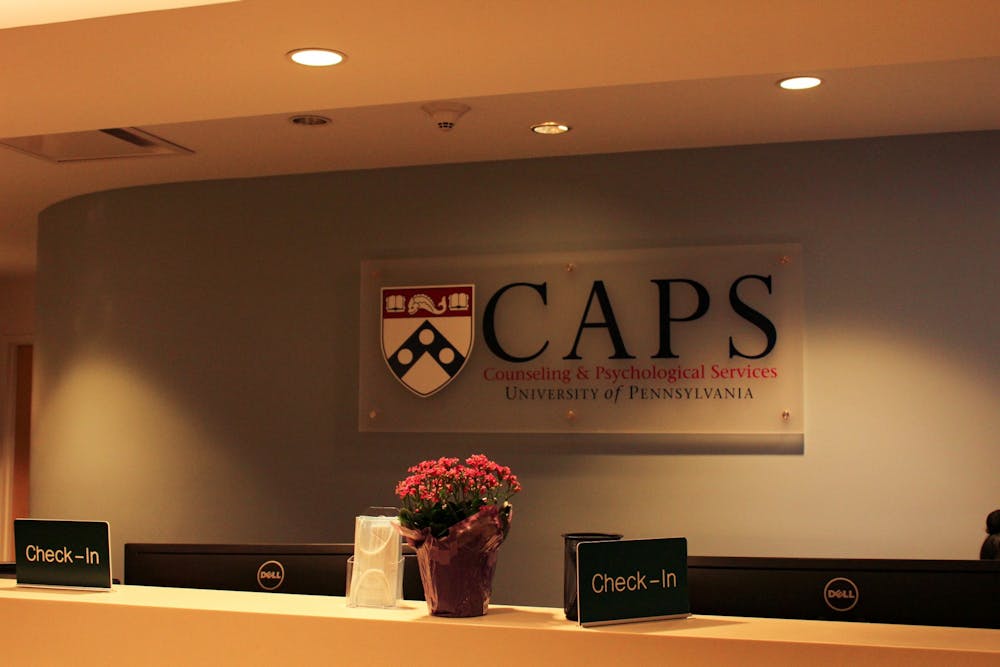
Content warning: The following text contains mentions of suicide and can be disturbing and/or triggering for some readers. Please find resources listed at the bottom of the article.
From 2013 to 2018 – in a span of five short years – 14 Penn students died by suicide. Then on September 9, 2019, the Executive Director of Counseling and Psychological Services (CAPS), Dr. Gregory Eells, tragically died by suicide. Yet, still to this day, we as a Penn community have barely discussed any of this, if at all.
Suicide is not easy for me to write about, or for anyone really, but this needs to be addressed. While writing this column, I quite literally had no particular direction or outline of what I wanted to say. But as challenging of a topic as it may be, the conversation surrounding suicide must start somewhere, anywhere.
I work for the National Suicide Prevention Lifeline, and I absolutely love what I do, but of course it is not easy. When people inquire about my role, often I simply cannot put into words how much this work has impacted me. I have spoken with a variety of individuals while on shift, and each conversation somehow leaves me more impressed with the strength and courage we as humans have in battling suicidal thoughts and related mental health matters. I firmly believe that anybody who deals with suicide or suicidal ideation in any capacity, to whatever extent that might lead to, holds incredible strength that is practically indescribable.
Suicide is never straightforward and cannot ever be plainly understood or explained. Every conversation is difficult, meaningful, and memorable for me, and I love that this work allows me to constantly learn more about something so innately complex to grasp. I feel proud knowing that I can somehow save lives, but it makes me so much more proud when I connect with individuals, and I can practically feel their strength and resilience.
Some therapists at CAPS have spoken up regarding their concerns for suicide contagion, the process by which indirect or direct exposure to suicide can trigger similar thoughts and behaviors in susceptible individuals. Interestingly, during my own training as a suicide and crisis counselor, we learned that contagion is a largely unfounded misconception. But whether this remains a myth or not is not my place to debate.
Rather, I think we can all agree that a complete lack of meaningful discourse regarding suicide only fuels stigma, perpetuates ignorance, and dismisses tragedies.
Often, people immediately hear the word “suicide” and are either extremely uncomfortable or extremely alarmed. Notably, there are a range of suicidal behaviors, from a concrete plan to suicidal ideation to everything in between. There are many other myths out there about suicide, but I am not here to educate on how we should respond if and when speaking with an individual who is struggling. Rather, I want to focus on opening up a dialogue surrounding suicide, an undoubtedly hefty subject that can affect us all to differing extents.
When it comes to suicide, we often feel more comfortable discussing it anonymously or not at all. There exists a subreddit, in which users can anonymously share their suicidal thoughts, behaviors, or plans. Individuals usually check up on each other and support one another despite the anonymity. There’s no doubt that people want to help, but oftentimes we simply don’t know how to.
But what kind of twisted world do we live in where it is much more common to joke about suicide (i.e., “That exam made me want to kill myself”) than to hold meaningful conversations about suicide? As a student, I hear such jokes all too often. Just in case, I’ll clarify by directly asking if they mean it, and once I realize it’s just a joke, I feel disgusted.
So, there are two concrete steps we can take. First, let’s open the dialogue regarding suicide, instead of dismissing or neglecting its hold. A stigmatized, perhaps unpleasant, conversation must start somewhere, but it can start anywhere. Second, let’s avoid joking about suicide, and correct such remarks if we do hear them. I think it’s the least we can do for now.
BRIDGET YU is a College senior from Los Angeles, Ca. studying Psychology. Her email address is bridgtyu@sas.upenn.edu.
CAMPUS RESOURCES
National Suicide Prevention Lifeline: 800-273-8255
The HELP Line: 215-898-HELP
Counseling and Psychological Services: 215-898-7021 (active 24/7)
Student Health Service: 215-746-3535
Office of the Vice Provost for University Life: 215-898-6081
University Chaplain’s Office: 215-898-8456
Reach-A-Peer Helpline:
- 215-573-2727 (every day from 9 p.m. to 1 a.m.)
- 215-515-7332 (texting service available 24/7)
The Daily Pennsylvanian is an independent, student-run newspaper. Please consider making a donation to support the coverage that shapes the University. Your generosity ensures a future of strong journalism at Penn.
Donate







